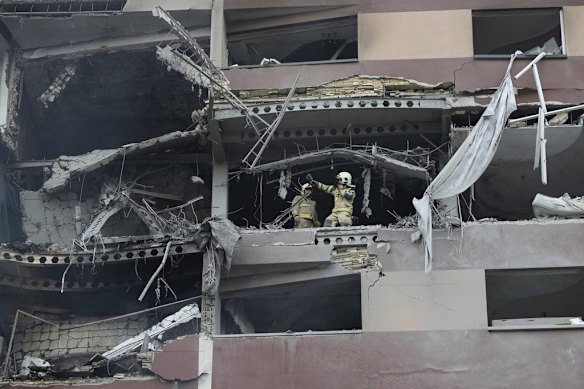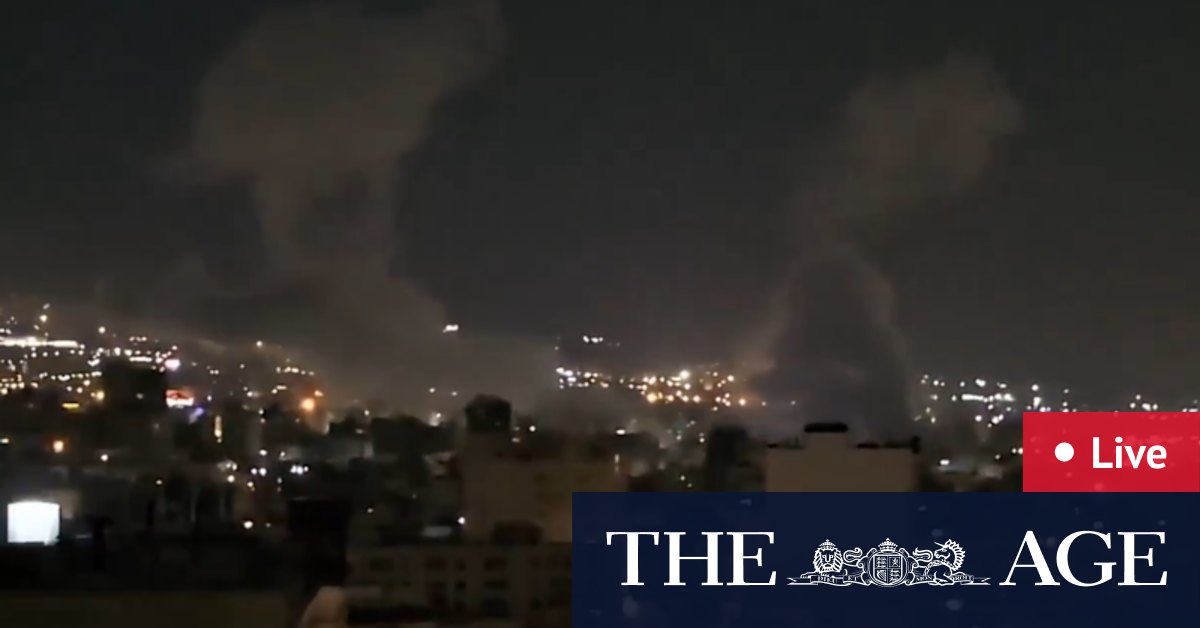The attack without warning by Israel against a range of targets across Iran is unprecedented, even by the new standards of behaviour established since the April 2024 Iranian strike against Israel. That attack, in turn, was carried out in response to Israel’s strike against Iranian military personnel in Iran’s diplomatic compound in Damascus.
Israeli Prime Minister Benjamin Netanyahu has characterised it as a necessary action to forestall the existential threat posed to his country by Iran’s desire to weaponise its stockpiles of enriched uranium. Yet only a few months earlier, US President Donald Trump’s director of national intelligence, Tulsi Gabbard, testified before the Senate intelligence committee that the intelligence community had assessed Iran was not actively pursuing nuclear weapons and nor had its supreme leader allowed such a program to be commenced.

The aftermath of an Israeli attack on northern Tehran on Friday.Credit: AP
If they weren’t reacting to an imminent threat, then why choose to bomb Iranian targets now? The answer is because they could. Or more particularly, because the environment that would allow them to do so would not be any better in the future. They had long wanted to conduct such an attack, but the political and military conditions had not allowed them to. That has changed.
Loading
To begin with, Iran’s air defences were significantly degraded as a result of Israel’s October 2024 air attack. It takes some time to rebuild such a capability, and the longer Israel waited, the more likely it would be that Iran could mount some sort of air defence against an attack. In addition, Tehran’s “Axis of Resistance” had been significantly degraded over the past 18 months – in particular, Lebanese Hezbollah has suffered leadership decapitation and significant personnel and material losses.
Read more on this opinion piece from Middle East and security analyst Rodger Shanahan here.
